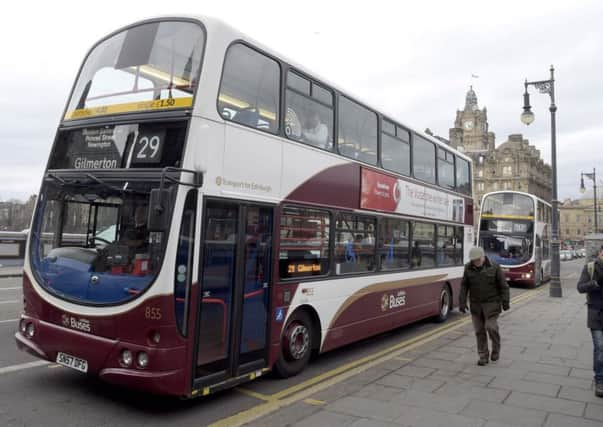Gavin Booth: Bus passengers must be heard if services are at risk


Eight out of every ten bus journeys in Scotland are run commercially, with the bus operator taking the financial risk; the rest are socially necessary services supported by local authorities. With pressure on budgets, we are seeing cuts in both commercial and supported services which inevitably impact on passengers who need to get to school, to work, to find work, to surgeries, to hospitals and to the shops.
Bus passengers in Scotland’s cities and larger towns tend to enjoy more frequent services that run every day of the week and well into the evenings, but increasing congestion is causing frustration for users and operators. Professor David Begg, who introduced the Greenways bus priority scheme in Edinburgh 20 years ago, has noted that while average bus speeds initially increased by over 5 per cent, bucking the UK trend, they have since declined by 20 per cent. Begg is calling on the City of Edinburgh Council to review traffic signal timings and to ensure that Greenways are properly marked and properly enforced. Passengers are losing out with slower bus speeds and slower speeds can mean that bus operators need to invest in more buses to maintain frequencies and passengers must bear these extra costs through fare increases.
Advertisement
Hide AdAdvertisement
Hide AdThe situation outside Scotland’s urban areas is very different, and was highlighted by a recent report from Scottish Citizens Advice Bureaux. In rural Scotland bus services have often been cut back to a bare minimum where timings make it difficult to make essential journeys for healthcare, employment and education. With pressure on local authority budgets many are suggesting that more innovative approaches are needed. Locally-based community transport, which can cover everything from car-sharing to dial-a-ride minibus services, is seen as the answer in many parts, and a ‘hub and spoke’ system where community buses connect with main road buses to towns and cities is another approach that has proved successful.
More than 1.3 million people in Scotland hold National Concessionary Travel Scheme cards entitling them to free bus travel, but many older rural residents are frustrated that they have cards but no local bus services where they can use them. Bus companies are reimbursed with just over half of the normal bus fare and Transport Scotland reports that one-third of bus journeys in Scotland were made under the scheme. For many older people the scheme is a lifeline as it give them the freedom to get out and about and encourages a healthier lifestyle. For fare-paying passengers the rising cost of running buses can be reflected in increased fares, but in real terms the increase in recent years, adjusted for the effects of inflation, is just 2 per cent, and considerably lower than in Britain as a whole. Technology is allowing bus companies to introduce more smartcards and there are encouraging moves towards the introduction of an Oyster-style electronic purse that can be used on buses, trains and ferries throughout Scotland.
Bus Users Scotland (BUS) acts as the passenger champion helping to resolve complaints, facilitating face-to-face events where passengers can talk directly to their local bus company, and monitoring services across Scotland for reliability, punctuality and quality. Bus Compliance Officers travel incognito monitoring the routes run by all operators, from the largest group to the small privately-owned company and report back to local bus managers. These reports also go to the Traffic Commissioner for Scotland, who has powers to call bus companies to Public Inquiry when serious problems have been identified, which could result in a fine or, in extreme cases, removal of the licence to operate. BUS reports that complaint handling has improved greatly, with speedy and appropriate responses to passengers, and compliance monitoring has helped resolved potential problems before they become more serious.
With bus companies and local authorities looking hard at their budgets, BUS is anxious to minimise the impact on passengers and works with all stakeholders to ensure the passenger voice is clearly heard and that proper consultation takes place before irreversible decisions are taken that could cause hardship and social isolation.
• Gavin Booth is Director of Bus Users Scotland